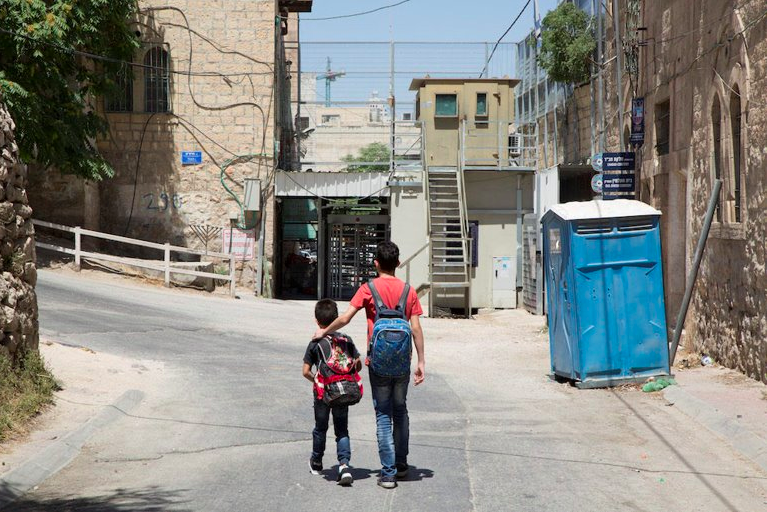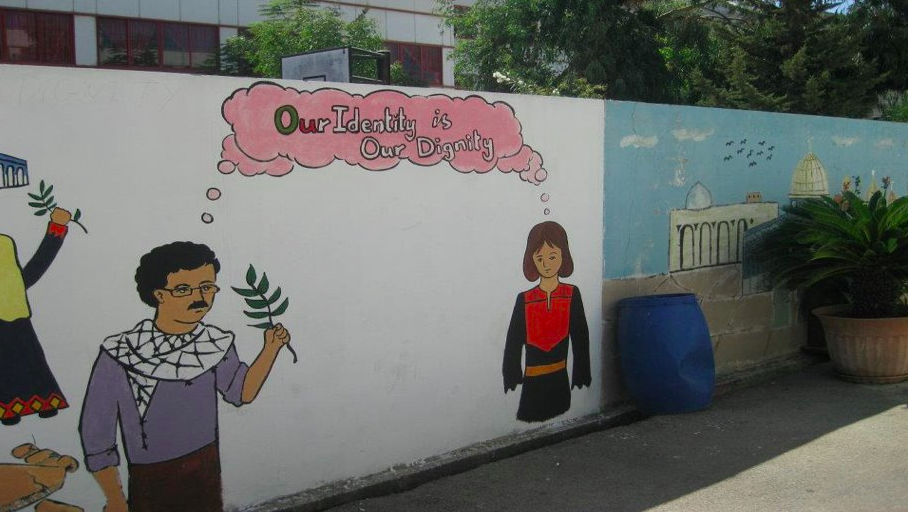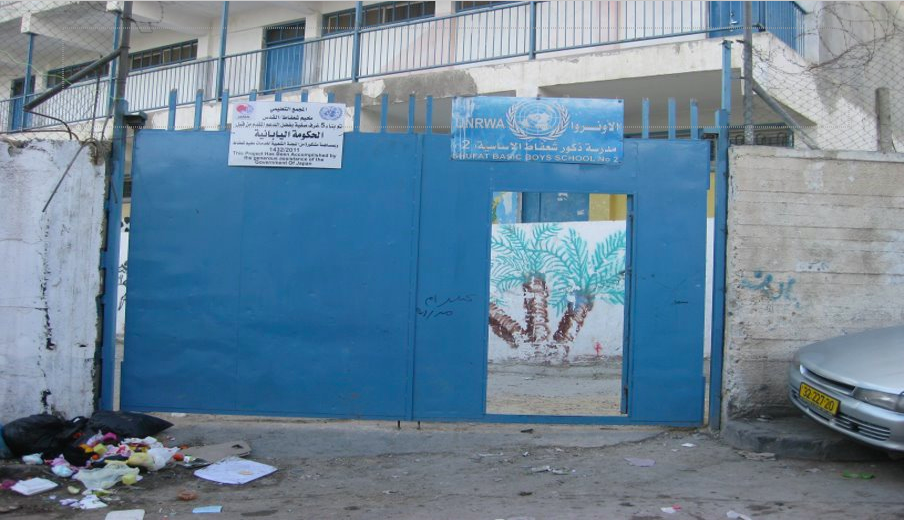
By Professor John Traxler, CBRL Travel Grant recipient and professor at the University of Wolverhampton.
A Palestinian teacher reports:
Their school is exposed daily to risk; children are shot and exposed to tear gas agents thrown at the door of the school on the main street, which terrifies students, parents and teachers.
My project focuses on digital literacy. This is the concept in European education that identifies the skills, attitudes and knowledge that support the survival, fulfilment and prosperity of individuals in an increasingly digital world.
My earlier research suggested that this conception of ‘digital literacy’ was inadequate outside Europe, and specifically in Palestine. This was due the European focus on the individual with no mention of the community and the culture. It was also inadequate in the Palestinian context because it failed to address the hegemony of global English or of American digital technology and how this might impact on communities, like those in Palestine, whose cultures and language might be overwhelmed by this hegemony. Furthermore, a European conception of digital literacy was based on implicit assumptions about the role of digital space and digital identity, in relation to physical space and physical identity. In Palestine, digital space and digital identity have a greater significance owing to the severe constraints on physical space and physical identity. One consequence of this is the need to express widespread anger, frustration, trauma, loss and pain in circumstances where meeting or demonstrating are be prohibited or problematic.
A CBRL Travel grant enabled me to undertake fieldwork to help understand this apparent inadequacy in order to develop more appropriate conceptions that could feed into changes in education policy and practice. In this blog, I explore the extent to which thinking about digital technologies might provide improved educational, emotional and economic support for the schools and communities in Palestine portrayed in the above quote.

Whilst information about technical infrastructure, population demographics and government policy and provision is relatively accessible, the details of people’s lived experiences in these extreme circumstances is much less so. These are all, however, vital to thinking through the exact nature of the contributions that digital technology could make and how a refined and appropriate conception of digital literacy can give these contributions coherence and constancy.
My fieldwork involved a large-scale survey of over 500 teachers and follow-up focus groups with teachers in Nablus exploring the impact of the Israeli occupation on teaching and the role of digital technology in their working lives. The survey recorded pervasive problems in maintaining the continuity, consistency and quality of schools under constant pressure from disruptions from the occupation. These problems included the checkpoints, curfews and closedowns, not to mention episodes of injury, imprisonment, violence and death.
Teachers participating in the survey reported that many of their schools have a website and almost all a text messaging system. These online resources, in addition to phone calls, email and social media pages, help the school stay in touch with students and colleagues when security restrictions prevented attendance at school. Often the closures happen unexpectedly, and events and meetings are cancelled without warning. Sometimes students simply cannot attend school.

The focus groups further added to the survey findings. For example, the teachers described the difficulties of the daily commute, arriving late because of standing in front of the security gate for hours. They also described:
The presence of the tank in front of the school and the denial of access to the school are a major reason for our inability to focus on education as the time was wasted by talking about it amongst students.
They describe how learners were affected by experiences in their everyday lives outside school, saying:
…having an empty chair with a martyr’s photo on it and the refusal of students to sit on the chair in order to commemorate and respect the martyr, leads all the students to continuing talking about him and remembering the incident.
One teacher remarked that no child in her class was unaffected by a death or wounding in their immediate family.
The teachers also talked about the combined impact that the lack of specifically Palestinian digital resources, including those in Arabic, and of restrictions on travel, particularly to Jerusalem, are having on their students. This deprived their students of a fuller sense of their Palestinian identity because they had little access to the history and geography of their own country.
Digital technology, both personal and institutional, is used by teachers and schools on a piecemeal and reactive basis. However, I believe that a comprehensive and appropriate conception or definition of digital literacy for the Palestinian education system, from kindergarten to higher education and adult community learning, would mean that the full potential of digital technologies to support teachers and learners in a uniquely challenging situation could be realised.
This conception would underpin and energise many important kinds of opportunities, desperately needed by Palestinian communities currently inhibited or prohibited by the Israeli occupation. These include, the ability to explore and exploit the widest range of online digital resources, to build active democratic and political digital spaces, to create authentically Arabic and Palestinian educational resources, to preserve and enhance Palestinian language, traditions and intangible cultural heritage; to find outlets for trauma, anger and bereavement and to support of specifically Palestinian digitally-based economic activities.
This conception of digital literacy would address the totality of the communities’ challenges and resources – digital, material, economic and cultural. It would provide a framework for asking how digital engagement and activity might enable communities and individuals to survive, flourish and prosper in ways they themselves value.
My next steps are to broaden the current evidence based around individual and community experiences and feelings. Then after collating the objective aspects of infrastructure, demographics and livelihoods and then synthesise these into a coherent account. The final step is to take this to the Ministry of Higher Education, responsible for teacher training, and the universities in order to collaborate on suitable policies, curricular and materials.
John Traxler, FRSA, is Professor of Digital Learning in the Institute of Education at the University of Wolverhampton. He is a Founding Director of the International Association for Mobile Learning. He is co-editor of the definitive, Mobile Learning: A Handbook for Educators and Trainers, and of Mobile Learning: the Next Generation, available in Arabic, of Mobile Learning and Mathematics, Mobile Learning and STEM: Case Studies in Practice, and Mobile Learning in Higher Education: Challenges in Context, and many keynotes, panels, papers, articles and chapters on all aspects of learning with mobiles. His journal papers have been cited over 7000 times. He has worked on many digital learning projects and missions.
The views expressed by our authors on the CBRL blog are not necessarily endorsed by CBRL, but are commended as contributing to public debate.














